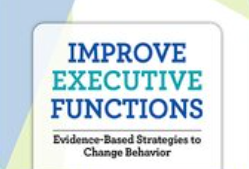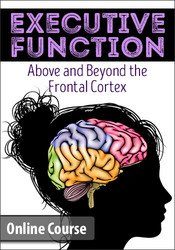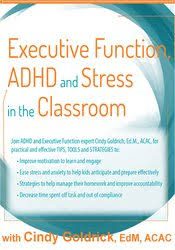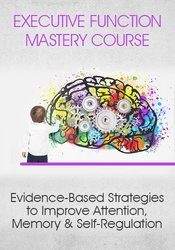🌟 New Year Offer 🌟
Celebrate 2026 with 30% OFF on all products! Use code: NEWYEAR2026. Hurry, offer ends soon!
Available for Pre-Order. This product will be delivered within a few days.
Lorelei Woerner- Eisner, George McCloskey – Executive Function
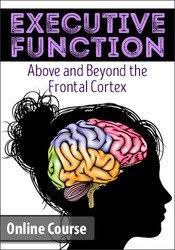
Highly sought-after occupational therapist and international lecturer. Lorelei Woerner-Eisner OTR/L, C-IAYT,RYT500 shares her experience, continuing education and therapeutic techniques over 20 years. She also offers an integrative view on wellness. This convenient online course offers convenience. Integrative research is a new direction-Clinically proven and based techniques To improve initiation, engagement behavior, attending behavior, memory, and processing as well as self-monitoring.
Consider the following challenges: A child who scores high but fails in school, is distracted and impulsive, is anxious, or lacks motivation.
- Expand your principles of yoga, mindfulness, breath and the gut in developing: flexible thinking, memory, planning, organization, impulse control, emotional regulation, attending behavior, task initiation and habit building
- Strategies to increase motivation, efficacy, carryover and decrease fear, anxiety and resistance
- Modify sensory input to increase alertness and/or facilitate calming
Lorelei You will be guided step by step-By-Step through Executive Function The foundational elements of brain function, effects on the gut, sensory input, stress, fear, and other factors will be covered. Then she will show you how to apply that into Integrative treatments While learning and experiencing Specific strategies that can make a difference in children’s lives.
Don’t miss this unique opportunity to explore integrative and cutting-Edge techniques you can use right away!
Expand your understanding of executive function and increase effectiveness as a therapist.Principles of Executive Function Levels The Whole Person
- Physical – movement, posture, and anatomy
- Breath and physiological system
- Intellect – cognition and self-Expression and sensory
- Personality – Preferences, values and behavior
- Subjective and emotional tone
- Brain development & autonomic nervous system (ANS)
- Pruning and the “use it or lose it” principle
- Vagus nerve’s relation to physical and emotional effects
Stress can have an effect on EF
- Effect on neural networks
- Cortisol and the fight/flight effect on brain
- Fear and anxiety are two different things
- Finding the root cause of anger and frustration
The Gut Brain
- Enteric nervous System: “second brain”
- The gut is home to neurotransmitters, which can affect mood
- ADHD-gut connection
- Nutrition can enhance mood and memory
Sensory Processing
- 3 levels of regulation
- Reticular Activating System – Swings Effect
- Adjustments in sensory input are made to achieve balance
- Sensory input can calm the sympathetic nervous system
Strategies to Develop Healthy Habits
- Use your mind to change your brain
- Power of thought and visualization
- Steps to establish routines
- Enhancing neurogenesis, neuroplasticity
Yoga, Mindfulness, Meditation Principles
- Mind-Body-Breath connection
- Yoga poses for self-Regulation
- To build a deeper self, use interoception-awareness
- The power of the pause
Breath and Regulation Techniques
- Breathing to increase arousal levels
- Increase and decrease in heart rate and blood pressure
- Supports movement and posture
- Techniques for processing in the pause, delayed gratification, focus and processing
Sensory Processing Strategies
- Self-improvement through the use of the sensory system-Regulation and calm of the sympathetic nervous system
- Considering rhythmicity, touch and other factors as factors in enhancing EF
Attention-Memory Connection
- Learning requirements for memory
- Emotion-Motivation connection
- Process enhancement requires intrinsic motivation
- The driving force behind optimism and hope
- Multiplier!-It is not a good idea to assign tasks-Productive
- Strategies that help focus and recall
Put an end to Impulsivity
- Marshmallows – The importance of learning how to wait
- Anti-Rush therapy to promote waiting
- Do-Overs to teach healthy alternatives
Self-Generation and Self-Determination
- Promote delayed gratification, self-Monitoring, task initiation, emotional controls
- Encourage persistence in enduring difficult and dull activities
- Allowing for time to process, plan and self-Correction
Strategies for healthy social connections
- Therapy tool that uses the whole person: emotion, modeling, and positioning
- The power and effectiveness of therapeutic relationships
- Facilitation and cuing to encourage participation, engagement, and greater independence
- Teaching tolerance and awareness
Treatment Strategies to Deal with Challenging Emotions
- Reduce stress to facilitate EF
- Understanding fear is the basis of many difficult emotions
- Use the teachable-Moment “failures”
You will leave this online course with new ideas to spark your creativity, strategies to facilitate cooperation, and practical carry-out strategies.-Over in your clients
Would you like to be contacted? Lorelei Woerner- Eisner, George McCloskey – Executive Function ?
- Proven Interventions to Help Children, Adolescents, And Adults
- Profile your client’s EF strengths and weaknesses to target specific interventions
- Promote EF development – strategies for directing, cueing, prompting
- Transition strategies from being externally prompted and internally regulated
- Tailor interventions can be used either individually or with large groups/classrooms.
- Teach your clients independence
Course Features
- Lecture 0
- Quiz 0
- Duration Lifetime access
- Skill level All levels
- Students 0
- Assessments Yes


